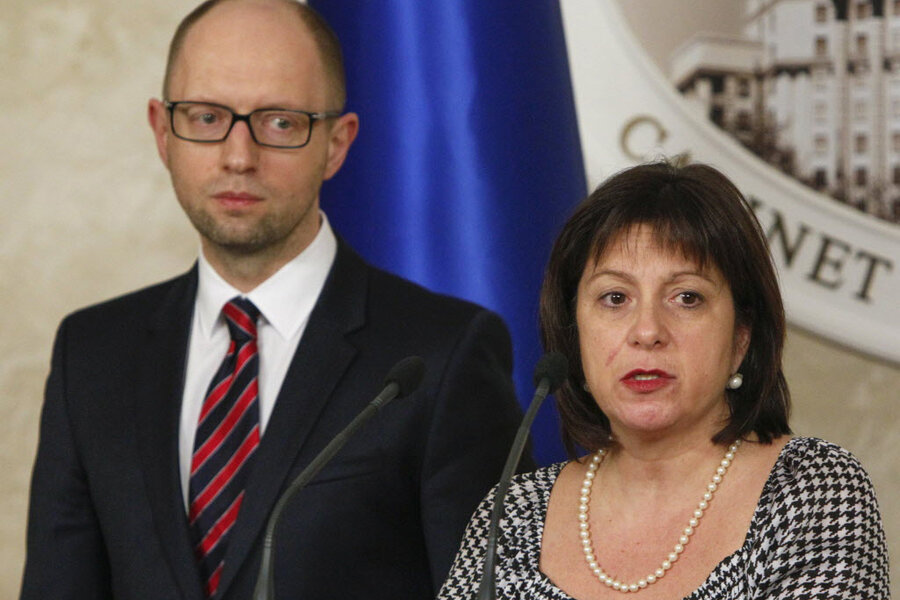IMF will loan $17.5 billion to Ukraine
Loading...
| Kiev, Ukraine
The International Monetary Fund agreed Wednesday to extend $17.5 billion in loans to Ukraine as part of a program designed to pull the country back from the verge of economic collapse.
IMF managing director Christine Lagarde said in a statement that the new four-year extended arrangement will support economic stabilization and wide-ranging reforms in Ukraine.
Ukraine's Finance Minister Natalie Jaresko said earlier in the day that the government expected to receive $5 billion from the IMF in the "coming days."
Credit is being extended on condition that the government in Kiev implements deep structural reforms and slashes government spending.
On Tuesday, Ukrainian President Petro Poroshenko signed off on legislative measures to drastically reduce spending and also approved changes to the tax system.
"This fully carries out Ukraine's side of the agreements that were reflected in a memorandum with the IMF," Poroshenko said Wednesday at a joint press conference in Kiev with Swedish Prime Minister Stefan Lofven.
Lagarde hailed Ukraine's "strong commitment to reform."
"They have maintained fiscal discipline in very difficult conditions, allowed the exchange rate to adjust, and have increased retail end-user prices for gas," she said in a statement.
Lagarde said measures would be taken to help cushion the poorest from the impact of adjustments.
In Washington, the White House welcomed the IMF's decision.
"The United States is working alongside international partners to provide Ukraine with the financial support it needs as it continues to take steps that will transform the Ukrainian economy and strengthen its democracy," White House spokesman Josh Earnest said in a statement.
Utility prices have risen across the board in recent weeks and inflation has taken large chunks out salaries. The government budget for 2015 is based on what many analysts believe is an optimistic projection of a 5.5 percent contraction in the economy.
Ukraine's economy, already hamstrung by crippling bureaucracy and corruption, has been further burdened by the war in the east with Russian-backed separatists. In an interview with The Associated Press last month, the U.S.-born Jaresko estimated the conflict had consumed about 20 percent of the country's economy.
Poroshenko said a positive decision by the IMF would open the way to more support, including from the World Bank and the European Bank for Reconstruction and Development. Ukraine has been promised $2 billion worth of credit from the United States and 1.8 billion euros ($1.9 billion) in economic assistance from the European Union.
Sweden has committed to giving 175 million euros ($185 million) in interest-free loans over seven years, Poroshenko said at the press conference with Lofven.
Poroshenko said the overall assistance package being formed to see Ukraine through its economic crisis now exceeds $40 billion.
James Ellingsworth in Moscow and Josh Lederman in Washington contributed to this report.







